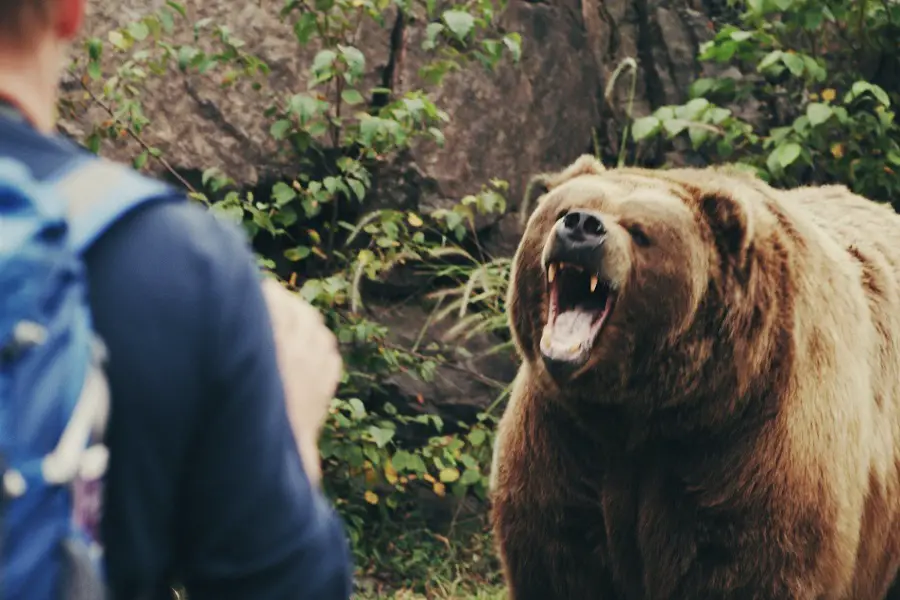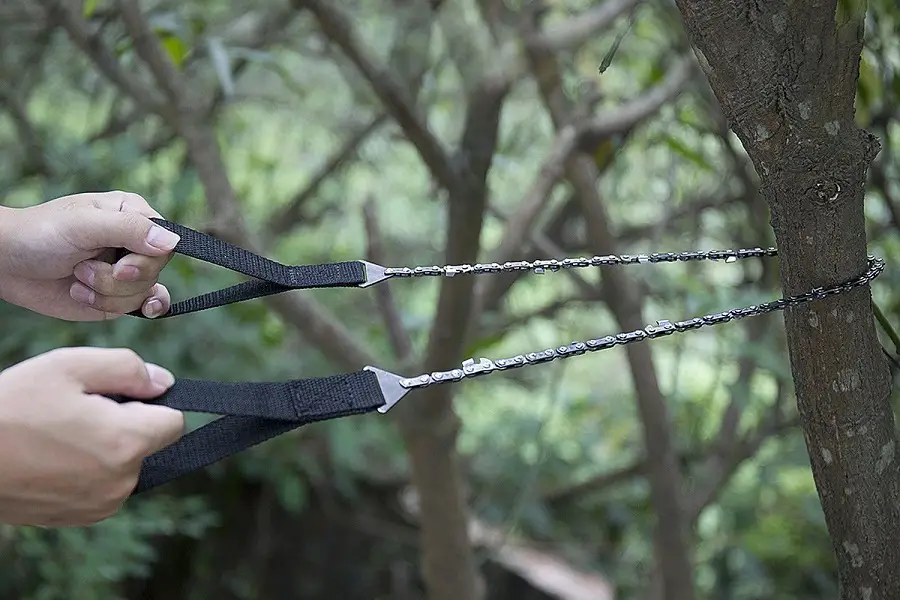This is a question that has been asked by campers, hikers, and outdoors enthusiasts for centuries. Unfortunately, there are no easy answers to this age-old conundrum.
In order to better understand the relationship between humans and bears—and whether or not they actually do consume human flesh—we must take a closer look at bear behavior, attacks on people in the wild, how we interact with them as well as their conservation status.
Myths and facts about these majestic creatures will also be explored so that you can make an informed decision when it comes time to venture into nature’s playground.
So let’s dive deep together into understanding do bears eat humans!
Bear Behavior
Bears are omnivores, meaning they eat both plants and animals. They feed on a variety of foods including berries, nuts, roots, grasses, insects, fish, small mammals, and carrion.
Some bears also scavenge for food in human settlements or garbage dumps. Depending on the season and location of the bear’s habitat will determine what type of food is available to them.
Are Bears Aggressive?
In general, bears are not aggressive toward humans unless provoked or threatened by humans. However, if a bear feels its cubs or territory is being threatened it may become aggressive as a form of self-defense.
It is important to remember that even though most bears will avoid confrontation with humans there have been instances where bears have attacked people when startled or surprised by their presence in their territory.
How to Avoid Confrontations with Bears?
It is important to understand bear behavior in order to reduce the risk of a confrontation.
Knowing what bears eat, their typical aggression levels, and how to avoid them can help you stay safe when outdoors.
Bear Attacks on Humans
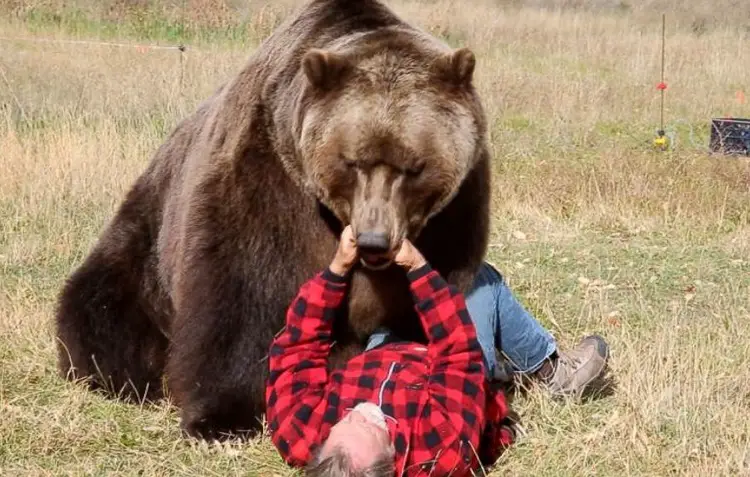
Bears can attack humans in a variety of ways, ranging from charging and swatting to biting and mauling. Charging is when the bear charges at a person with its head down and mouth open.
Swatting is when the bear swipes at a person with its paws or claws. Biting occurs when the bear grabs onto a person’s body parts such as arms, legs, or clothing with its teeth.
Mauling is an extreme form of aggression that involves prolonged contact between the bear and the victim resulting in severe injury or death.
Causes of Bear Attacks on Humans
There are several reasons why bears may attack humans including hunger, fear, defense of cubs/territory, habituation to human food sources, surprise encounters in close quarters (such as tents), or curiosity about novel objects like backpacks or cameras.
It’s important to remember that all bears have different personalities so what causes one bear to become aggressive may not be true for another individual animal.
If you find yourself being attacked by a bear, it is important to remain calm and try not to panic. This will help you think clearly about how best to respond depending on the type of attack taking place.
If possible, move away slowly while speaking calmly but firmly; never run away from a charging bear as this could trigger an instinctive chase response from them. Instead, stand your ground until they stop their approach then back away slowly while continuing talking calmly yet firmly until you reach safety.
If necessary, use pepper spray deterrent which has been proven effective against some species; however, it should only be used as a last resort since it can agitate some bears even more than before causing them further distress.
While bear attacks on humans are rare, it is important to be aware of the types, causes, and survival strategies in case you find yourself in an unfortunate situation.
Human-Bear Interactions
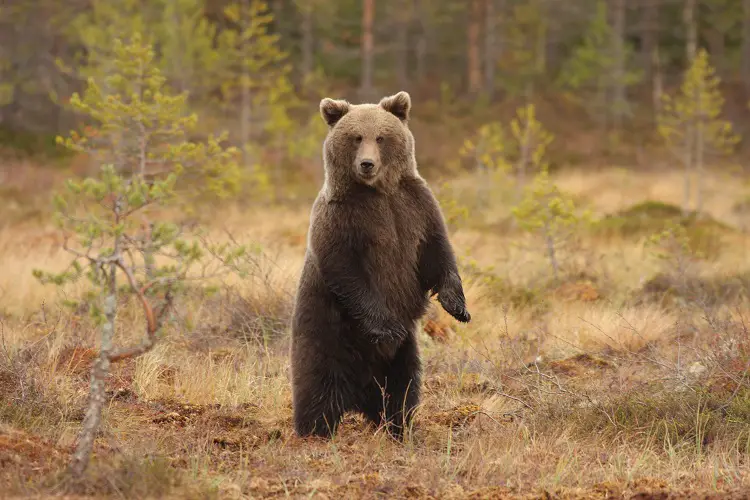
Human-bear interactions can be both beneficial and dangerous. It is important to understand the risks associated with interacting with bears in their natural habitat, as well as how to safely interact with them.
Benefits of Human-Bear Interactions
Bears are an integral part of many ecosystems, and observing them in their natural environment can provide insight into the importance of conservation efforts.
Bear watching can be a thrilling experience for nature enthusiasts who wish to observe these majestic creatures up close.
Furthermore, some research suggests that human presence may have a calming effect on bears and reduce aggressive behavior towards humans.
Dangers of Human-Bear Interactions
Despite the potential benefits, it is essential to remember that bears are wild animals and should always be treated with caution when encountered in their natural habitat.
Bears may become aggressive if they feel threatened or perceive humans as a food source; therefore it is important to remain aware at all times while out in bear country.
Never approach or attempt to feed a bear under any circumstances; this could lead to serious injury or death for both parties involved.
If you encounter a bear while out hiking or camping there are several steps you should take immediately: Remain calm and do not run away from the animal; instead back away slowly while speaking calmly but firmly so that the animal knows you mean business.
Make yourself appear larger by raising your arms above your head or opening your jacket wide open; this will help intimidate the animal without escalating aggression levels further.
Lastly, make sure you carry bear spray (or other forms of deterrent) whenever possible – just in case.
Conservation and Protection of Bears
We need to protect bears from extinction because they are an important part of our environment and ecosystems.
Bears play a vital role in maintaining healthy forests, grasslands, and other habitats by dispersing seeds, preying on smaller animals, and helping to control the spread of disease.
Without them, these habitats would be much less diverse and productive.
Laws and regulations for protecting bears vary from state to state but generally include restrictions on hunting or trapping certain species of bear as well as prohibitions against feeding or harassing them. In some areas, it is illegal to kill a bear even if it is attacking livestock or people.
These laws help ensure that populations remain stable so that future generations can enjoy their presence in nature.
We need to protect bears for the future of our planet and its inhabitants, so it’s important to understand the laws and regulations that are in place.
Myths and Facts About Bears Eating Humans
Common Myths About Bears Eating Humans
There are many myths about bears eating humans that have been passed down through generations.
One of the most popular is that black bears will attack and eat people if they come across them in the wild. This is false, as black bears rarely attack humans unless provoked or threatened.
Another myth is that grizzly bears will always attack and eat humans when encountered in the wild. While this may be true for some grizzlies, it’s not a universal truth; most grizzlies would rather avoid contact with people than engage in an altercation.
Scientific Facts About Bears Eating Humans
It’s important to note that while bear attacks on humans are rare, there have been cases where a bear has eaten a human after attacking them.
In these cases, scientists believe the bear was either defending itself from perceived danger or trying to protect its food source (in other words, it wasn’t necessarily looking for human flesh).
Studies show that male brown bears tend to be more aggressive towards humans than female brown bears due to their larger size and strength advantage over females of the same species.
FAQs
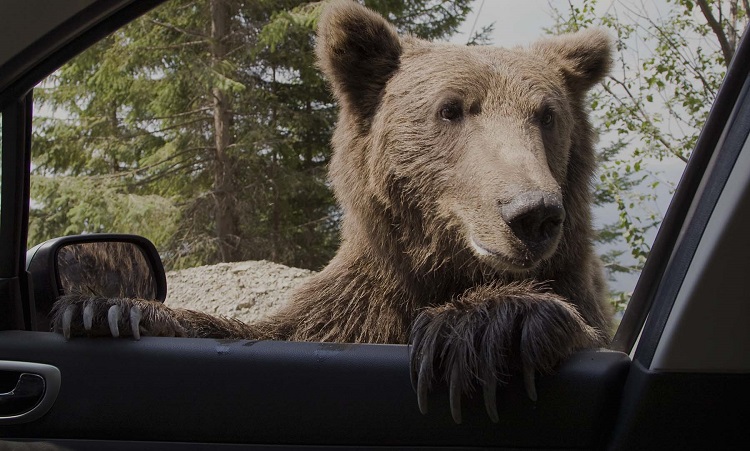
Has a human ever been eaten by a bear?
No, there is no record of a human being eaten by a bear. Bears are generally shy and avoid humans, though they may become aggressive if provoked or threatened.
In rare cases, bears have attacked humans when food sources are scarce or when the animal feels threatened. However, in most cases these attacks result in minor injuries rather than fatalities.
Will a grizzly bear eat you?
No, a grizzly bear will not eat you. However, they are powerful predators and can be dangerous if provoked or surprised.
It is important to take precautions when in bear country such as carrying bear spray, making noise while hiking, and avoiding areas with fresh carcasses or signs of bears.
If you encounter a grizzly bear it is best to remain calm and slowly back away from the area without running or making sudden movements.
Conclusion
It is clear that bears eat humans is a myth. While it’s important to be aware of bear behavior and take precautions when interacting with them, the chances of being attacked by a bear are very slim.
Bears are wild animals, but they can also be an amazing part of nature to observe and appreciate from afar. It’s important to respect their space and keep our distance so we can continue to enjoy the great outdoors without fear or worry about what might happen if we get too close.
It’s time to take action and ensure our outdoor activities are safe from the potential threat of bears. We need to educate ourselves on how to interact with these animals and be aware of their natural behaviors in order to avoid any incidents.
Resources:


